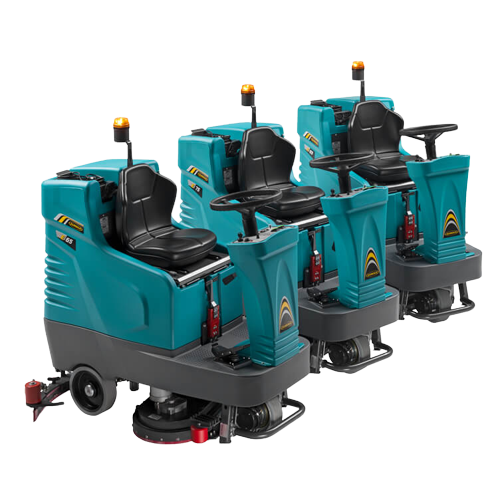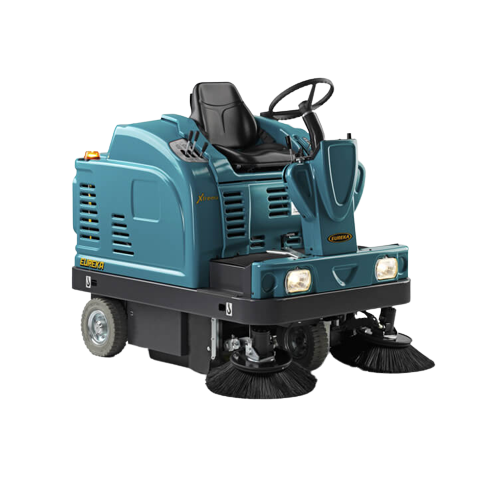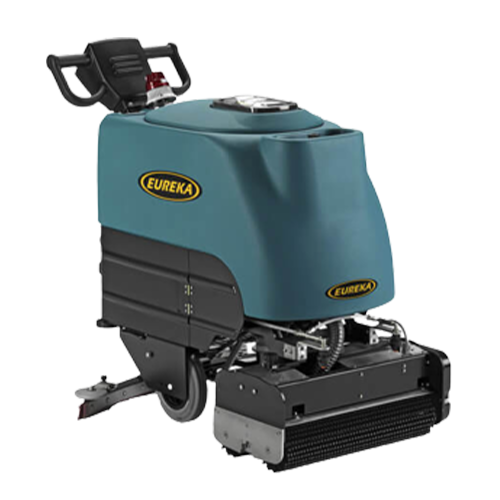There Many businesses deliberate about the decision about owning their forklifts or leasing them.
The answers are not simple and often subject to an individual situation. However, the following article and related checklist will help our customers with this decision by highlighting all of the relevant factors. The checklist will then step you through each factor to assist with compiling a view on which option is likely to suit your business.
Philosophy – Equity Position
By leasing a forklift you are amortising the cost of the unit over the term of the lease. The rate you pay is made up of: a portion of the total asset (subject to the estimated residual value used in the lease calculation); a financing component; and generally a maintenance component.
By owning a forklift you are committing the asset to your Balance Sheet. This may – or may not – involve taking on some debt to fund the purchase. If some debt is involved you need to consider what your cost of funds are compared to the forklift supplier.
The first and most important consideration
The first and most important consideration relates to the position of the company’s shareholders and their Balance Sheet. There is a requirement of philosophical commitment to the ownership of such an asset type.
Shareholders may, in some cases, have a preference to keep particular asset types off their Balance Sheet. Thereafter, the decision should consider the strength of the business’ cash position and Balance Sheet. If the forklift is intended to be debt-funded then a review of the company’s relative debt-position should be involved.
Operational Risk – Fleet and Application
The next consideration relates to the specifics of the forklift required and the intended application. This level of detail provides an insight into the related risks and exposures.
If you require a heavy workload from your forklift then you need to have a high level of confidence in its performance. By leasing your forklift from a reputable supplier you are abdicating this responsibility. This is because your lease or rental contract will generally be established on a fully-maintained basis. This means your forklift will be subject to a rigorous service programme and any breakdowns will be covered by your maintenance agreement – hereby reducing any exposure relating to forklift downtime.
How to minimize the risk?
Conversely, if your forklift is doing very low hours it may also be preferable to lease. This logic relates to your ability to fully utilise the asset. If usage is particularly low then it may result in a very low return on investment if you were to own the forklift.
By owning you may be assuming an additional risk around the performance and reliability of your forklift. Although if you ensure that you have a service programme in place with a professional forklift service agent. The you can mitigate that risk.
 This exposure may be even greater if you have a forklift of a specific type. If the forklift has been spec’d to meet your exact requirements and is not a regular spec then you may be assuming additional downtime risk around the availability of backup forklifts.
This exposure may be even greater if you have a forklift of a specific type. If the forklift has been spec’d to meet your exact requirements and is not a regular spec then you may be assuming additional downtime risk around the availability of backup forklifts.
Additionally
Additionally, these risk factors around your fleet and the specific nature of the forklift will also alter if you run a larger fleet of forklifts – thus providing you with a degree of available backup.
Generally, the more specific the forklift the more likely that your lease costs will be prohibitively high. This is because your supplier will price in a smaller residual value into the lease calculation to reflect the reduced resale value. In such cases, this may result in ownership being financially beneficial.
Other factors to consider include:
- If you run a uniquely spec’d forklift; then you will have a limited future resale options, where you own the unit.
- With a large forklift fleet, the function of buying and selling equipment may become a time-consuming exercise, favouring the rental option
- If business requirements are changing then shorter term rental option can provide flexibility whilst cementing a long-term structure
Financial Implications
The final, and often the most significant factor, in the decision relates to the financial implications for your business.
Firstly, you must take into account the opportunity cost for your money. This means considering what is the best use of your money. This is not specifically a financial calculation, but a simple question around what you could alternatively do with your money.
The question on return on investment looks at the financial impact of the purchase on your business, or the profitability of the asset. If you can maximize this return on investment it will contribute to an improved overall return on your company assets.
Let’s take an example
For example, a transport company may see a direct influence on profitability by owning their forklift – a more modern fleet may improve processing speeds, create efficiency, or eliminate downtime. However, a retailer is likely to see much less direct impact on profitability and view their forklift simply as a cost of business. Therefore, we place the funds for a retailer, in a better way in alternative capital, machinery or resources. Hence, that are going to make a superior return on that investment.
A forklift lease is generally a fully tax-deductible business expense, whilst owning means that you claim tax on the depreciation of the asset over its defined life. However, from a tax perspective, the differences are likely to be minimal over the full term of the lease. Often any improvements in profit from owning the forklift will only accrue later in the lease term. This is because the depreciation deductions are larger in the first few years under the IRD’s diminishing value rules. We recommend a detailed review of your financial position and a financial forecast.
What more you can do in it?
You may also need to consider which key financial measures the directors of the company generally monitor. By owning your forklift you will improve the ongoing reported cash flows in your business and – although your profitability may not differ significantly – if you monitor profits after depreciation costs you will notice a considerable improvement. Conversely, it depends on method of the forklift’s funding, by owning the forklift you may see a deterioration in the strength of your Balance Sheet.
Additionally, you are likely to have less certainty in costs through owning due to an increased exposure to break down and repair costs. If certainty of costs, and budget comparisons, are important to your business then fixed and regular lease costs may also be advantageous.
For gaining a good understanding of all of these factors
To gain a good understanding of all of these factors customers should consult with their key stakeholders, and discuss the options with their forklift supplier. We have a well equipped team at Centra Forklifts. We can assess your situation and provide some professional advice that can guide in your decision.
What we have special for you?
Our team have also developed a checklist for our customers to summarise the key factors and assist them with the decision-making process. Ask our sales team professionals about this checklist and how it can support your business in making this important decision.
Leasing or Owning a Forklift Checklist:
| No | Question | Yes | No |
| 1 | Does the shareholder have a philosophical objection to owning forklift assets? | ||
| Does a preference exist for leasing due to financial structure or shareholder philosophy? |
| 2 | If you own, would the purchase be debt-funded? | ||
| Are you taking on a loan to fund the purchase, as opposed to using available cash? |
| 3 | Is the forklift expected to perform a heavy workload? | ||
| Are the forecasted operating hours greater than 20 hours per week? |
| 4 | Is the forklift expected to perform only a low number of operating hours? | ||
| Are the forecasted operating hours less than 10 hours per week? |
| 5 | Is your forklift specially spec’d for your application? | ||
| Has your supplier made mods to the standard spec when ordering the forklift? |
| 6 | Do you have an exposure by not having similar backup machines? | ||
| Do you run a single uniquely spec’d forklift or differently spec’d units? |
| 7 | Are there any alternatives that may contribute more positively to your business? | ||
| What are the opportunity costs for this investment? |
| 8 | Are there other investments that will provide greater return on investment? | ||
| Are there other options for your money that will provide improved financial returns? |
More Questions are
| 9 | Is your forklift spec unique, thereby reducing resale opportunities? |
| Is your forklift spec sought-after in the market, and could you attract resale demand? |
| 10 | Are your costs carefully monitored monthly, and measured against budget costs? | ||
| Are you reporting against strict budget targets and looking for consistency in performance to budget? |
| 11 | Do you have a funding facility, or the ability to access funds at competitive rates? | ||
| Do you have available security and sufficient strength to access funds competitively? |
| 12 | Do you have a high level of debt within the business? | ||
| Is the relative level of debt on your Balance Sheet, or the monthly interest costs, a concern? |
| Count of responses |
Scoring Guidelines:
The greater the number of ‘Yes’ responses the more likely it is that a lease option suits your business. If you scored more than 6 ‘Yes’ responses then leasing may better suit your situation.
Important Notes: This Checklist is for highlighting some of the factors. These factors helps in making the ‘Lease v Own’ decision. It can-not intend for providing a comprehensive view or a firm recommendation. The reality is that different businesses will want to place more emphasis on certain questions. Therefore a simple count of responses is less relevant. Please seek your own independent advice and perform your own financial calculations to supplement this Checklist.



